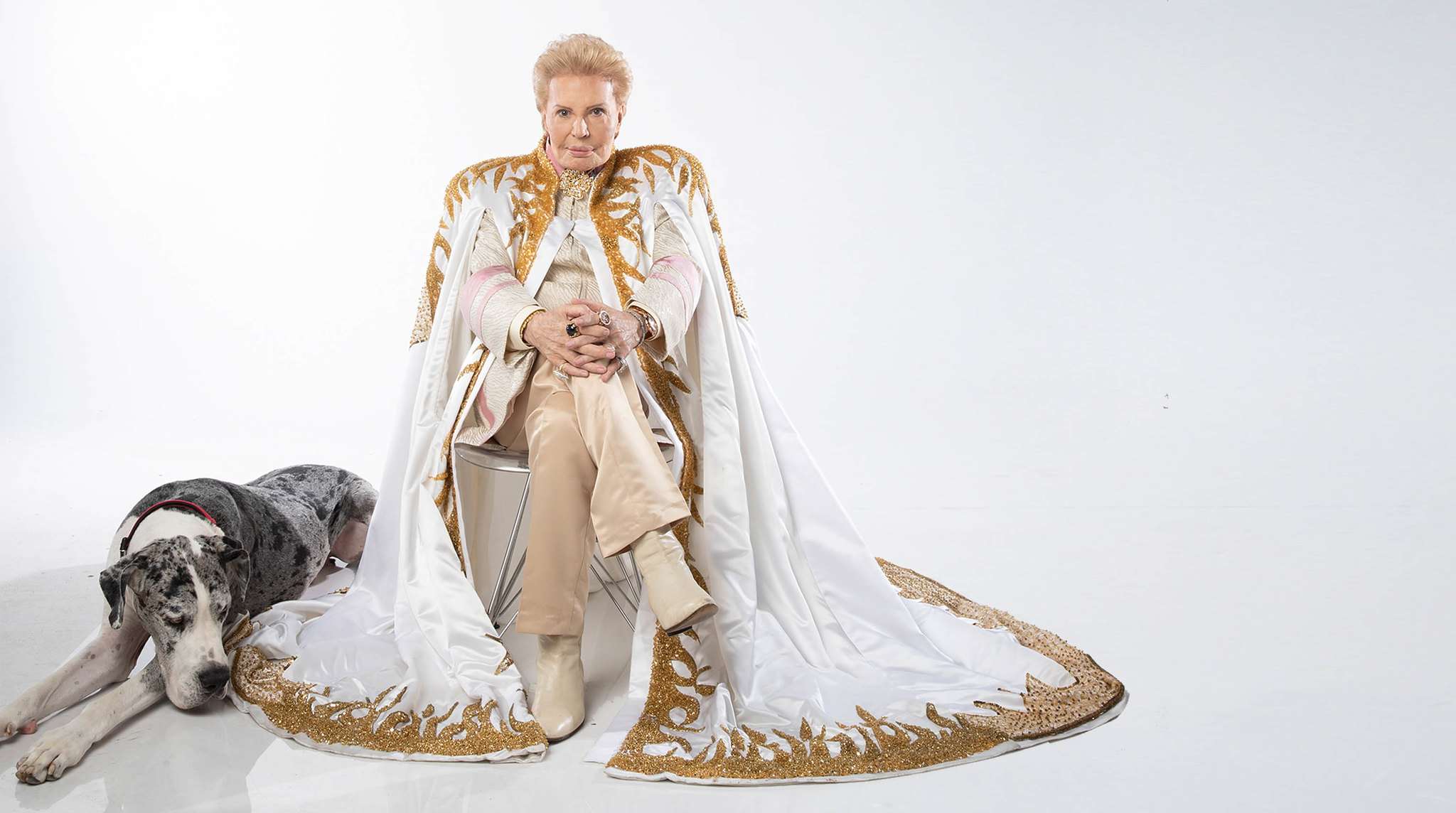I have a horrible confession to make. Growing up I was embarrassed by Walter Mercado. His flamboyance. His effeminacy. His penchant for the theatrical. Yes, even his capes. They all made me cringe. Worse yet: they made me ashamed because (spoiler alert) they all painfully reminded me of how much I wished I could be, and already was, like Walter. But for a young closeted Colombian boy who caught Primer Impacto religiously, it was easier to rebuke the sheer opulence of Walter — to dismiss him as laughable — than to examine what it was about myself that I chose to hate when I saw it in others. Thankfully, I’ve come far enough away from that embarrassed little boy to see not just how seriously I should have taken Walter, but how much brighter my own childhood could have been if I’d allowed myself to worship at his caped altar. If only, as it turns out, I’d followed Walter’s most common wisdoms: to be myself, to own my truth and to choose to spread, rather than shame or self-hatred, “mucho mucho amor.”
That expression, which closed out every reading Walter gave, is the title of Cristina Costantini and Kareem Tabsch’s new Netflix documentary on the famed Puerto Rican astrologer which premiered at the Sundance Film Festival. Constantini and Tabsch, as well as their producer Alex Fumero, are giddy Walter fans. Where I once found him too tacky (because he wore the kind of glittering clothes I knew would get me bullied at school) they found him fabulous; where I found him too extra (because his effeminate hand gestures were the kind I was trying to suppress in myself) they found him inspiring. Together they’ve created an ode and a celebration to all things Walter, zeroing in why he was such an alluring figure despite being someone who was all too easily to “other.” Here was, after all, as someone describes him in the doc, an androgynous, gender-nonconforming asexual astrologer who wore capes and rings and had a killer blowout. Yet he was loved. Adored. Worshipped, even.

His is a story of what it means to live one’s life according to one’s own rules and to swat away doubters and haters alike
That incongruity is what makes Walter Mercado such a perfect subject for a documentary. In a homophobic and sexist society — the kind that trained even someone like me to find Walter laughably garish instead of gloriously fabulous — he thrived. His is a story of what it means to live one’s life according to one’s own rules and to swat away doubters and haters alike.
In a recent sit down interview with Jorge Ramos we see in the film, Walter posited that he had no belief in a higher power, only in himself: we all carry God within us, he added. That was the kind of mantra that only someone like Mercado could toss aside so casually: it’s what made him become not just an astrologer but a kind of New Age self-help guru. He not only radiated positivity but tried to engender it, in turn. One of the joys of Constantini and Tabsch’s doc is the way it captures that vivacity without it ever feeling like a feature-length infomercial.
Taking visual and structural cues from Mercado’s beloved Tarot cards (including gorgeous 2D animations by Alexa Lim Haas) Mucho Mucho Amor begins as a mystery: where and why did Walter Mercado disappear? After decades of gracing the small screen he all but vanished at the turn of the century. In between scores of archival footage that help give those uninitiated a glimpse into everything Walter Mercado from his extravagant set pieces to his lyrical readings, the doc settles in to have the now-reclusive astrologer telling the camera his story of why we haven’t seen him in a while.
The story alone makes for a great ride: this is an epic that begins in the fields of Puerto Rico, takes us globe-trotting around the world, includes a ruthless legal battle across various countries, and ends in a PR estate that serves as backdrop and living museum for the opulence that is Walter Mercado.
But Mucho Mucho Amor isn’t merely a biographical doc. It is also a character study that aims to go beyond the capes, beyond the memes, beyond the flair. For someone who lived his entire life in front of the cameras there’s a welcome candor in Walter’s sit down interviews in the film (all of which have him wearing his signature costumes). Getting him to look back on his life as he finds himself at the brink of a comeback (courtesy of an exhibit at the HistoryMiami Museum), Constantini and Tabsch’s film is a celebration of everything Walter Mercado stood for, a joyful call to arms to be more caring to others. And, also, to ourselves.
Mucho Mucho Amor premiered at the 2020 Sundance Film Festival and will stream on Netflix later this year.







